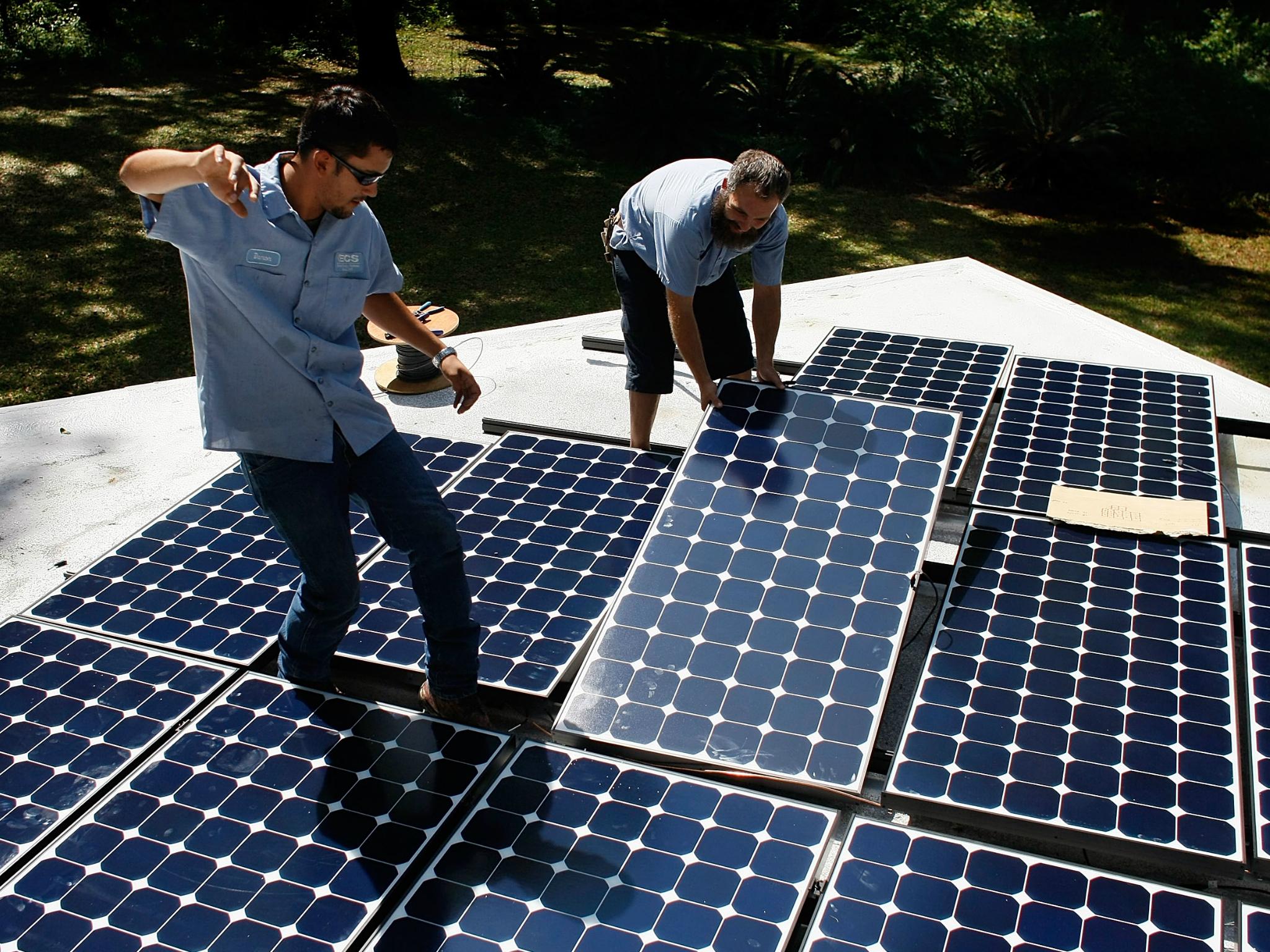The Independent's journalism is supported by our readers. When you purchase through links on our site, we may earn commission.
Trump slaps tariffs on imported solar panels as industry warns it will cost US jobs
The majority of the US solar industry does involve manufacturing panels

US President Donald Trump has signed into law a 30 per cent tariff on imported solar panels in an effort to protect American jobs, angering both China and the US solar power industry, which says it will actually lose jobs as a result.
"You're going to have people getting jobs again and we're going to make our own product again. It's been a long time," Mr Trump claimed as he signed the executive order.
The US solar industry employed nearly 374,000 Americans in full and part-time jobs.
The coal industry - which has been protected through the Trump administration’s environmental deregulation - employed approximately 160,000 people as of April 2017, according to a New York Times report.
A little over 260,000 people in solar power industry spent “a majority of their time on solar projects.”
Solar industry experts have argued the tariff would actually lead to thousands of layoffs and raise consumer prices instead of allowing the companies to compete better with foreign goods, which are often produced at a lower cost.
The reason: the solar industry in the US is made up of more than just panel producers. Only 14 per cent of those 260,000 jobs are in panel manufacturing, the majority are involved in installation and associated products.

Abigail Ross Hopper, president of the US Solar Energy Industries Association, said on a news conference call that it was a matter of economics: “if you raise the price of a product it's going to decrease demand for that product."
The industry trade associated, Ms Hopper said, predicted that the tariffs could decrease the projected 11 gigawatt of solar forecasted to be installed in the United States this year by 2 GW and lead to the loss of 23,000 jobs this year.
Eugene Wilkie, the owner of a solar installation company in Washington state, wrote a series of tweets on the tariff.
He said in one tweet: “The solar industry employs the kind of "forgotten" Americans whom Trump champions: small contractors who employ blue-collar workers earning a median of $26 an hour; one in 10 are veterans.”
Over the next five years, the new tariffs are projected to reduce US solar installation growth by 10 to 15 per cent, research firm Wood Mackenzie calculated.
The solar industry has a Republican ally as well. Senator John McCain, whose home state of Arizona is a leader in solar power, tweeted that the “new protectionist tariffs nothing more than a tax on consumers.”
Ironically, the request for the high tariff came from two solar energy companies - Suniva and SolarWorld - which are majority Chinese-owned and a German company’s subsidiary, respectively.
The companies filed a petition last year with the US Trade Representative claiming they could not compete with foreign-produced prices.
China, as the world’s largest producer of solar panels, has said the tariff is an “overreaction.” The US is the fourth largest market for panels behind China, Japan, and Germany.
"The [US] decision ... is an abuse of trade remedy measures, and China expresses strong dissatisfaction regarding this," Wang Hejun, the head of the commerce ministry's Trade Remedy and Investigation Bureau, said in a statement.
China said it would go to the World Trade Organisation to defend its interest in changing the US decision.
In addition, the Trump administration has decided to levy a 20 per cent tariff on the first 1.2 million washing machines imported this year, but 50 per cent tariff on any machines imported after that target is reached.
The US Trade Representative said in a fact sheet that imports of washing machines had risen dramatically between 2012 and 2016, hurting the domestic manufacturers.
Agencies contributed to this report.
Read more on solar panel costs
Join our commenting forum
Join thought-provoking conversations, follow other Independent readers and see their replies
Comments
Bookmark popover
Removed from bookmarks